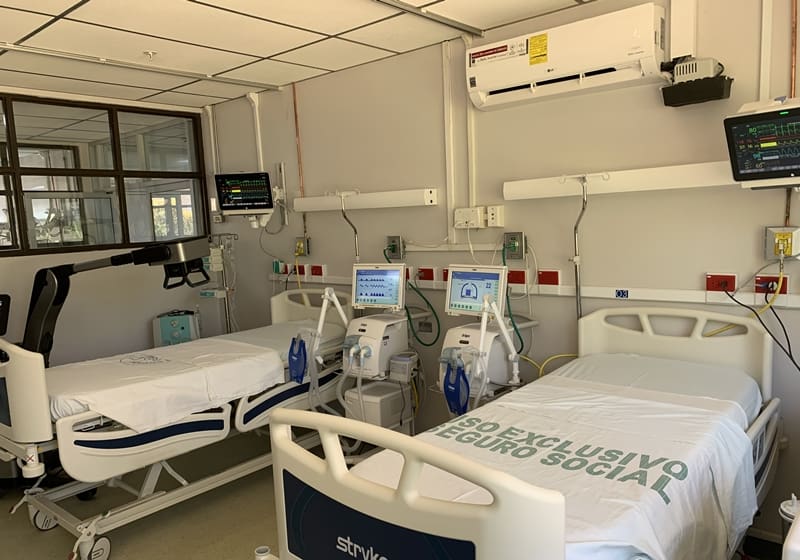Costa Rica did not adopt mandatory quarantines or drastic restrictions on the mobility of its population, but its fight against the new coronavirus has been highlighted as an example for maintaining one of the lowest levels of fatality and contagion in the world.
President Carlos Alvarado was cautious in an interview with AFP about what Costa Rica had achieved, surrounded by countries severely hit by the COVID-19 pandemic.
“What has been achieved so far, which is a fragile achievement, can fall at any time if discipline is not followed,” the president said in his office in San José.
Through May 22, the Central American country of 5 million inhabitants registered 911 cases of COVID-19 with 10 deaths, for a case fatality rate of just over 1%. A day earlier, only twelve patients were hospitalized with the disease and three of them in intensive care.
The president attributed the figures to the discipline of the population, which adopted the requests of the authorities, and that the measures adopted were based on scientific recommendations.
But he also cited the country’s historical legacy.
“We are a country that does not have an army, a country that has universal social security of almost 80 years, with 23 national hospitals and clinics and more than a thousand primary health care centers,” Alvarado said.
The representative of the Pan American Health Organization (PAHO / WHO) in Costa Rica, Dr. María Dolores Pérez-Rosales, agreed with the formula of the Central American country.
“I would summarize in this way the success Costa Rica has had: its response was intersectoral, it involved all sectors of the government; its health surveillance system acted quickly and it is a strong surveillance system; its health system is very well consolidated; and fourth, the commitment and positive response of citizens,” Pérez-Rosales said.
Informed measures
In the same sense, Dr. Ileana Vargas, director of the School of Public Health of the University of Costa Rica, cited the country’s socioeconomic situation and the educational level of its population as factors that differentiated its response to the pandemic.
“Since we did not have an army in 1948, there are more resources for health and education,” Vargas said. “And it is not the same to have an informed population with greater knowledge, compared to a community with a slightly more basic educational level.”
Costa Rica recorded its first cases of COVID-19 on March 6 in a pair of U.S. tourists, and days later declared a health emergency.
This was followed by the closure of educational centers, bars and nightclubs, as well as the cancellation of activities with a concentration of people, such as churches and sports events, along with a restriction on vehicular traffic.
The authorities did not take long to close access to beaches and national parks, while calling on the population to stay at home, adopt rigorous hygiene measures and maintain social distancing.
“There was a lot of uncertainty about what had to be done; however, we chose to protect life,” said Alvarado, who defended the principle of “using science and technology to respond, not giving political solutions to a health problem.”
Gradual reopening
With the spread under relative control, the government began last week a gradual opening, with less vehicle restriction time, a partial opening of beaches, and the resumption of the soccer championship under strict sanitary rules.
Although some fear persists among the population that infections will skyrocket, experts consider it possible to maintain control.
Vargas stressed that there is learning achieved in the time that the country has coexisted with contagion.
“We have all learned to wash our hands, use gel alcohol, keep our distance, and if we continue to behave in this way and heed the government’s instructions, we can do very well despite the relief of the measures,” said the public health specialist.
Likewise, the PAHO representative, Pérez-Rosales, stressed that the response so far leaves the country prepared to deal with a possible spike in infections.
“Costa Rica has been able to locate the cases, isolate them, manage them, and above all make the traceability of all contagions, so until now the spread of the pandemic has been maintained in ‘clusters’, and with that it has been able to have control in certain way,” she said.
In any case, President Alvarado anticipated that in the event of a rebound, the country will be able to respond with specific, non-generalized closings.
“We have already learned, so if measures must be taken, there is already the capacity to make them more focused, territorially and sectorally,” the president said.






